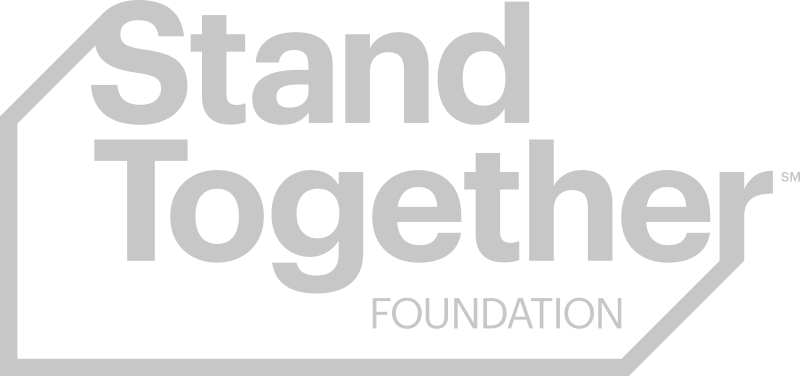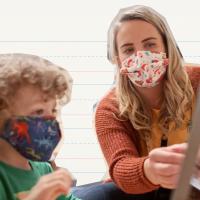Detroit’s Downtown Boxing Gym, affectionately called DBG by its students, opened in 2007 with no business plan and only five students. But today, DBG includes professional academic staff and volunteer tutors who serve over 150 boys and girls from grades 3 through 12.
In 2018, Detroit is ranked among the worst in the country for violent crime, unemployment, poverty, and educational attainment. So, how is DBG fighting poverty and sustaining a 100% high-school graduation rate among its students?
Equipping youth with resources and confidence
About 12 million students — or 20% of children — live below the poverty line in the U.S. The toll is heavy, both physically and psychologically.
Research shows that youth living in poverty experience higher rates of hunger, illness, instability, violence, alienation, neglect, and chronic stress, which in turn disrupts brain development. In short, poverty harms children’s bodies and brains, and the negative effects compound over time.
Moreover, poverty reduces confidence. Researchers use the term sense of self-efficacy to describe one’s belief that they are capable of performing well and reaching goals. Children in impoverished environments often receive limited positive feedback and lack examples of what they could become. Without adequate self-efficacy, youth have little reason to aspire for greatness or persist through setbacks.
Considering the obstacles, it may be no wonder why many youth struggle to complete high school and fulfill their potential. DBG founder and CEO Khali Sweeney told Freethink about his personal experience growing up.
“Somebody created a narrative for me because I couldn’t read or write. So I was always acting out…I didn’t have somebody to counter these accusations and these narratives that were being given to us about being dead or in jail.”
One promising intervention for youth living in poverty is high-quality after-school programs that consistently provide resources and support.
Whereas the lack of after-school adult supervision increases risky behaviors, victimization, and academic problems, high-quality after-school programs have been shown to improve social skills and academic performance, equipping students with the drive to pursue education for life. Moreover, positive outcomes appear strongest for low-income, at-risk youth.
The Downtown Boxing Gym works
After-school programs range from safe places, where youth simply “hang out,” to comprehensive programs that include educational programming and organized activities. Unfortunately, many after-school programs have limited measurable influence on academic success.
So, what makes DBG so special? The answer is partly that it’s a holistic, community-led program personalized to each student. It provides the kind of reliable, structured programming that research shows is effective. This includes opportunities for positive interactions with adults and peers, which help to improve physical and mental well-being while also challenging youth to develop their talents.
Boxing is the hook
Whereas many after-school programs suffer from substantial attrition, boxing brings students to the door and keeps them coming back. In addition to boxing, students can participate in yoga, strength training, and other athletics, as well as enrichment activities like art and music. The students might see it as just fun, but such programs can improve both physical and emotional well-being.
While boxing gets them in the door, the true purpose of DBG is fighting poverty through academic support.
Staff and volunteers provide year-round tutoring to students who commit to attend the program at least three days per week.
To supplement the boxing program, the gym provides hands-on science experiments and field trips, as well as assistance with scholarships, test-prep, and college applications. Its impact on academic success is outstanding. Not only have 100% of participants graduated high school since the program launched, but many have also gone on to pursue education for life, graduating college and earning degrees ranging from engineering to law enforcement.
One student told Freethink about the academic confidence he has gained with Sweeney’s support:
“It’s kind of inspirational to see how he turned his life around…Sometimes he goes around and asks people, ‘what do you want to be in the future?’ And he’ll say, ‘this could be your future lawyer, this could be your future architect, this could be your future engineer.’”
Support and education for life
In addition to academic support, DBG provides students with physical resources like healthy meals, immunizations, and internet access. But perhaps its most effective resources are intangible.
Many at-risk youths lack stable home families and support systems. Even loving parents may be unable to provide regular supervision and support due to working late hours, struggling with addiction, or being incarcerated. DBG helps fill the gap, providing a reliable support system that includes committed relationships and role models.
Not only are the adult staff and volunteers available every weekday, but some older students take on leadership positions and become role models to their peers.
After improving their own boxing and academic skills, they can be found helping younger students or leading classes.
In a world that treats many at-risk youths as destined for death or jail, DBG treats students as whole people deserving of respect. Sweeney described how he and the students aim to treat each other with respect and compassion, regardless of their past or what zip code they come from.
“I don’t see bad kids,” Sweeney told Freethink. “I see kids who haven’t been heard. I always listen to the kids. I always have my ear to them. It’s open. I’m listening. There’s got to be trust involved. I trust them. They trust me.”
Fighting poverty in Detroit
DBG’s wait-list exceeds 1,300 students from Detroit and nearby suburbs. Because the only “payment” required of students is to engage in regular community service, the program is entirely dependent on donations and volunteers.
But Sweeney is not doing victory laps. He hopes the program will continue to grow so it can help more youth.
“It’s our job as residents in this community to demand more, to be willing to sacrifice more, and to put in the work to change this plight,” Sweeney told Freethink.
Fighting poverty is a long-term project that might never be completed. But if more cities adopt strategies like DBG’s, it could instill in students the confidence, support, and real-life skills they need to succeed.



